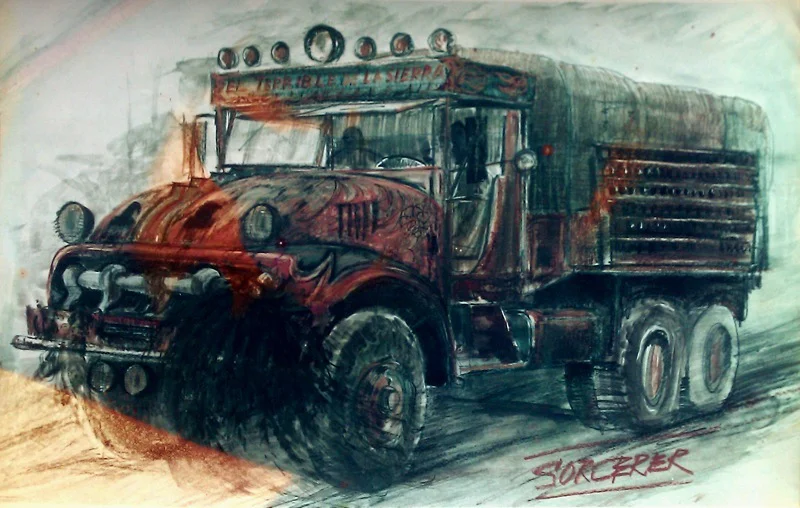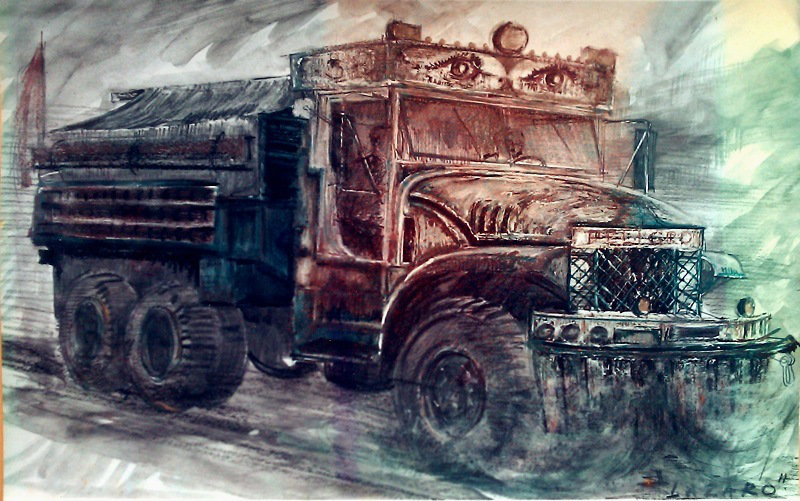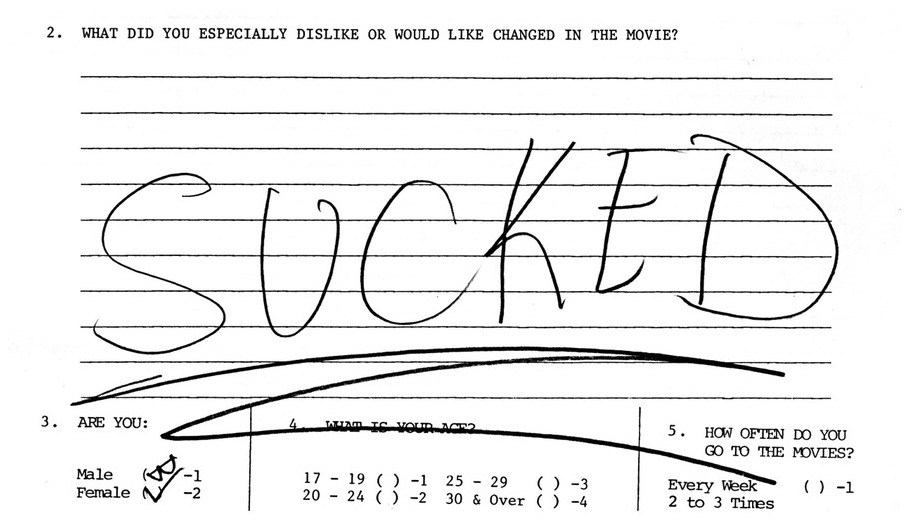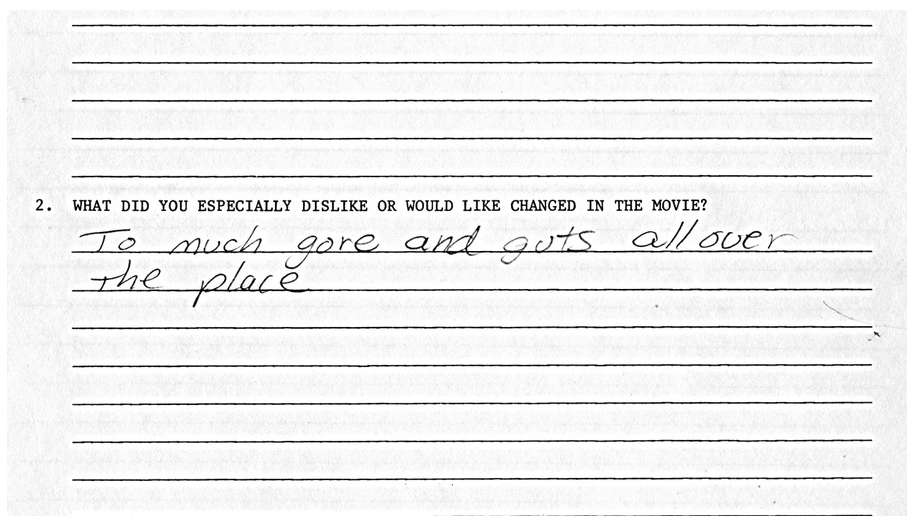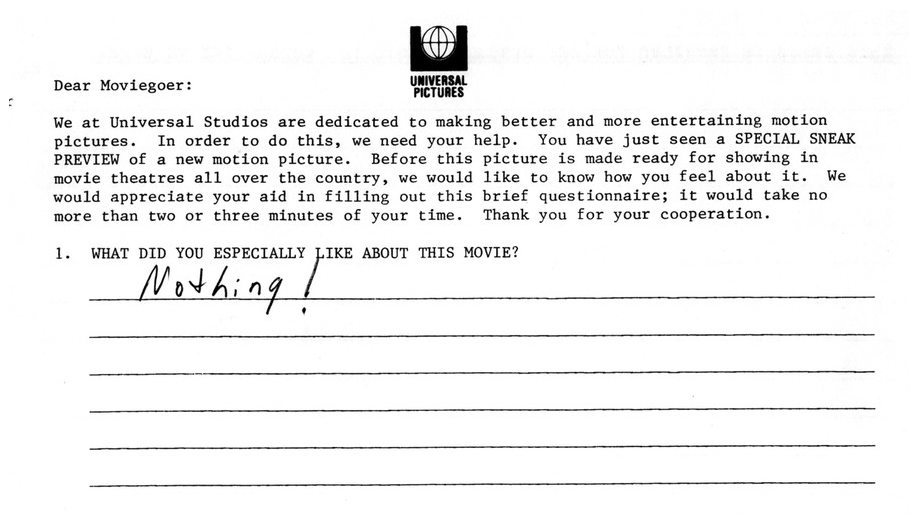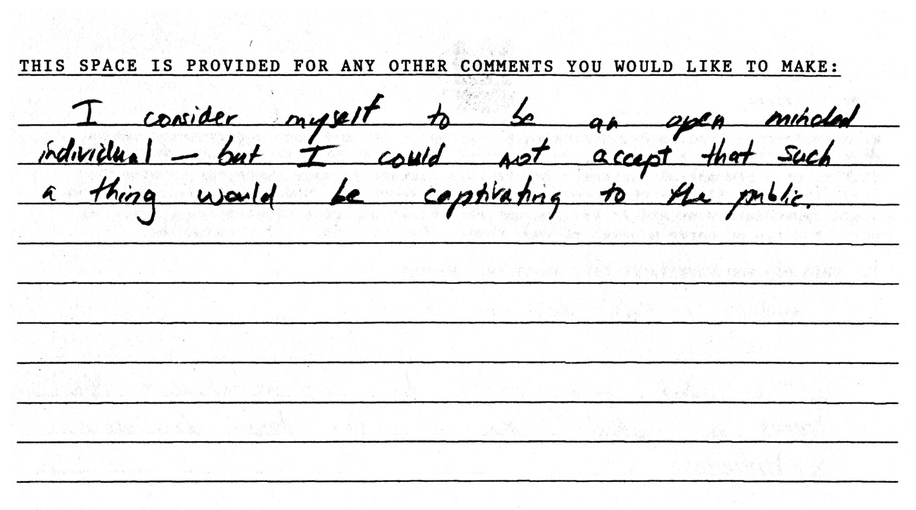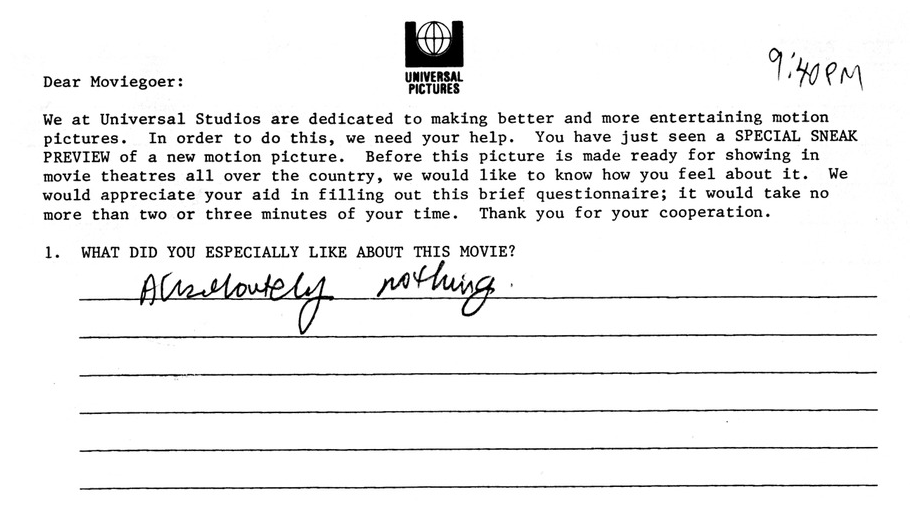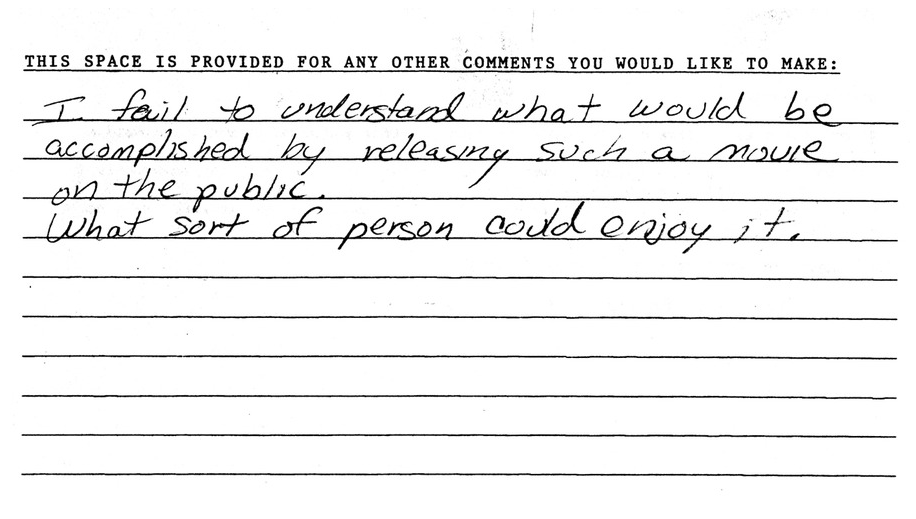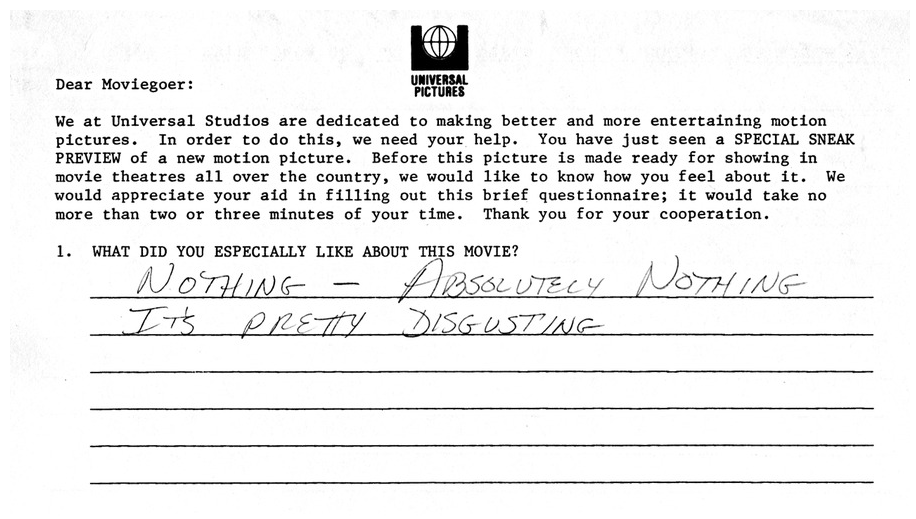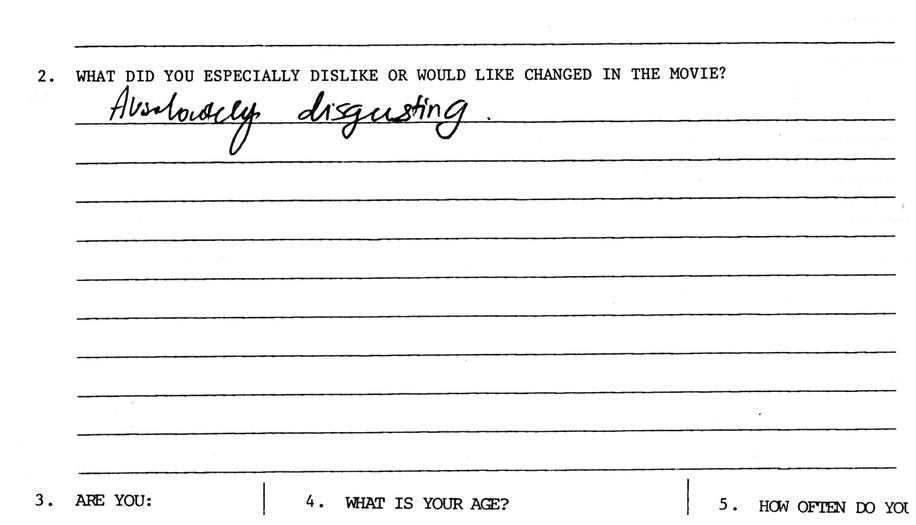One of the highlights from Criterion’s deluxe treatment of Blow Out is an hour long conversation between Brian De Palma and Noah Baumbach, filmed in October of 2010. Noah Baumbach isn’t the first filmmaker that springs to mind when thinking of appropriate De Palma pairings, but it’s fast apparent that he’s a genuine fan [he’s since curated a De Palma Suspense season at New York’s BAMCinématek.]
It’s always enjoyable listening to De Palma rail against conventions, clichés and trends, and this was no exception:
"When you start a movie with a helicopter shot of New York, is this an idea? Oh, we’re in Manhattan. Or these boring drive-ups, where the whole opening of the movie is a car driving up to a building. This is not an idea. Especially in the beginning of a movie where an audience is ready for anything. To waste that time with some boring geography shot mystifies me.
I’m always trying to figure out where the camera is in relation to the material. I’m always saying — and have been saying for years — that the position of the camera is just as important as what you’re photographing. A dirty word to me is coverage. Two shot. Over the shoulder. Stuff you see all the time that just drives me crazy because this, to me, is not directing. You have to think about where the camera is in relationship to the material."
The first time I saw De Palma interviewed was in 1998 when he sat down with Mark Cousins for the BBC’s Scene by Scene movie series. There he openly complained about modern movies, their lack of craft, the absence of cinema. He grumbled about the publicity machine and the lure of celebrity. He even stated that he’d never have agreed to the interview unless he was promoting a film [in this case it was Snake Eyes.] While the latter may be true for most directors and actors who are appearing on the television circuit, it’s rare for them to actually admit it. I managed to source an online version of the interview and re-watch it. Essential viewing, if only to watch De Palma squirm at Cousins’ verbose over-analysis and inappropriate moments of honesty. At one point, Cousins actually states, “[There’s] a sort of maverick quality in some of your work. Not all of it. I think you’ve made some terrible films. I hope it’s okay to say that.”
De Palma makes numerous memorable appearances throughout J.W. Rinzler's excellent book, "The Making of Star Wars". His reaction after George Lucas screened an early cut of the movie:
“What’s all this Force shit?! Where’s all the blood when they shoot people?”
Perhaps the definitive source for tales of De Palma is Julie Salamon’s The Devil’s Candy, a no-holds-barred look at the making of The Bonfire of the Vanities. One of the most memorable moments in the book is when 2nd Unit Director Eric Schwab requests to shoot an establishing shot from the script — “The sky is a labyrinth of planes taking off and landing.” De Palma stated that the day he included the clichéd shot of an airplane landing in one of his movies was the day that he retired. A $100 bet was placed and Schwab began a 6 month process of attempting to film the perfect airplane landing with preparation that involved pinpointing the exact moment that the sun would align with the Empire State Building as Concorde landed on a runway.
Finally, a Blow Out related tale of brat pack rivalry as told by Quentin Tarantino:


